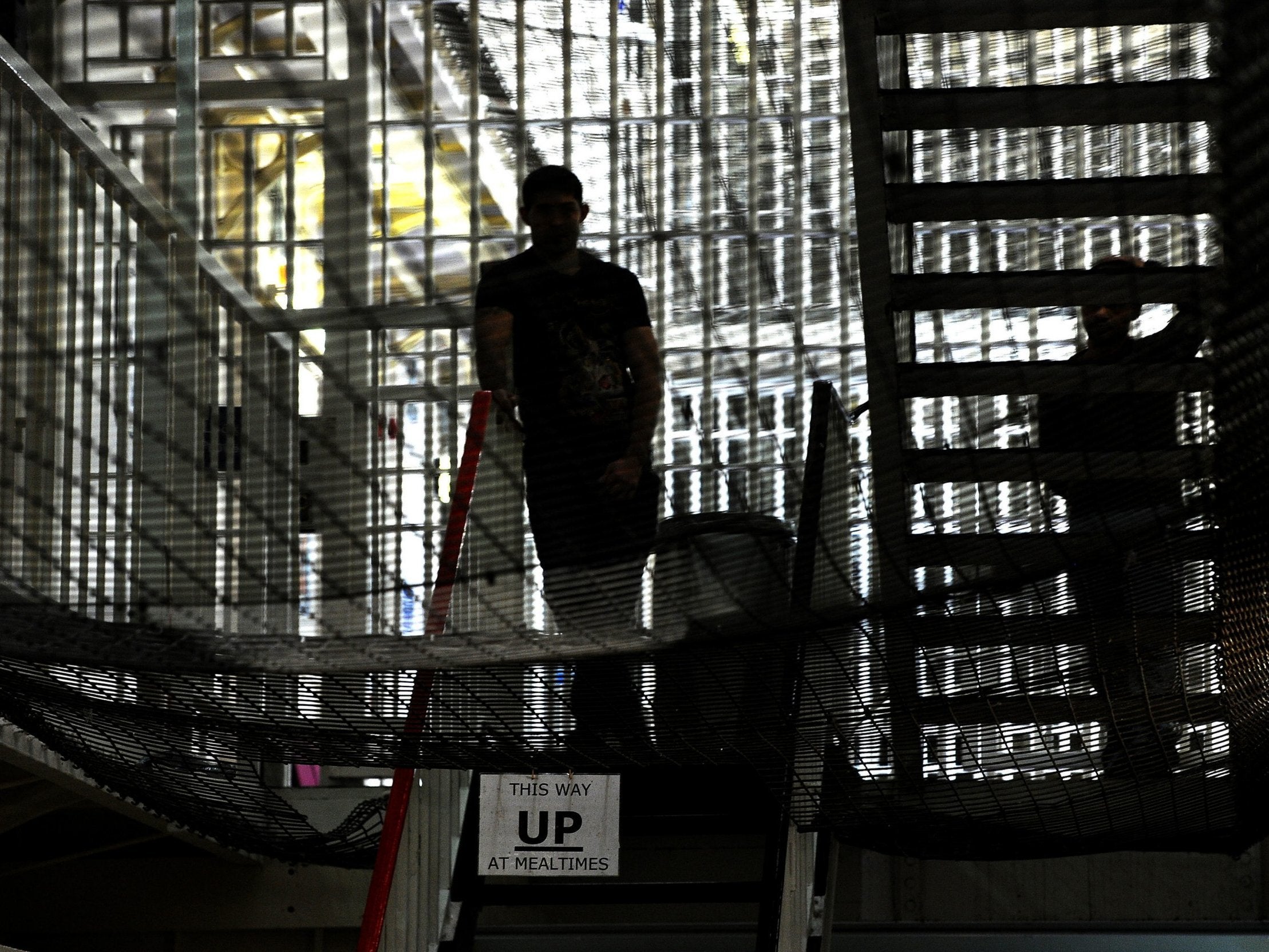Prison visitors to have faces and irises scanned as government targets drug smuggling
Critics accuse ministers of experimenting with controversial facial recognition technology in 'low-rights environment'

Prison visitors are to have their faces and irises scanned as part of government efforts to combat drug smuggling.
The justice secretary, David Gauke, said the biometric checks would help fight organised crime and make jails safer, with violence and self-harm at record highs.
But prison officers said technology could “only do so much”, and civil liberty campaigners called the move “staggering” amid legal challenges over facial recognition software.
Six-week trials were carried out at three jails, and statistics showed that while visitor numbers at HMP Lindholme and HMP Humber stayed level, HMP Hull saw a 40 per cent drop year-on-year.
The Ministry of Justice put the dramatic decrease down to a “deterrent effect” by the new technology, including ID scanning to check for fraud, facial recognition and iris scanning.
A spokesperson told The Independent that the tests were considered “successful”, and the technology would now be rolled out in other jails.
Mr Gauke said: “New technology is vital in our fight against the gangs that seek to cause chaos in prisons, and this biometric equipment has the potential to significantly aid our efforts.
“It forms part of this government’s multi-million-pound investment to improve the safety and security of our prisons.
“Alongside our successful officer recruitment drive, measures like this will help make prisons places of rehabilitation where offenders can turn their lives around. This will cut reoffending and make the public safer.”
The government hopes the new equipment will flag any potential smugglers before they can access prisoners, allowing staff to refuse them entry and gather evidence for any investigation.
The Ministry of Justice said it was also increasing the use of security scanners, phone blocking technology and drug search teams, as the Financial Crime Unit uses powers to freeze suspect bank accounts linked to prisoners.
Officials said intelligence had identified a trend of prison visitors supplying illicit items to multiple prisoners and jails, but the suspects often hid their true identity by using fake documents.
Some prisons currently use fingerprint recognition but most require paper-based identity documents like driving licences from visitors.

Officials said that during trials posters were placed in visit halls saying facial recognition and iris scanning was being used, and that the technology was explained by staff.
Unlike the automatic facial recognition software used by police, people are required to stand in front of a camera to be checked.
Griff Ferris, a legal officer at campaign group Big Brother Watch, accused the government of taking an “experimental approach to human rights” amid legal challenges over police forces’ use of facial recognition.
“The use of facial recognition in prisons comes as a total shock to everyone, including the commissioners who have been tasked to oversee this new surveillance technology,” he told The Independent.
“Government seeking public approval for facial recognition cameras in low-rights environments such as prisons is a staggering move, since we know it's also trying to introduce them as a general public surveillance tool.”
More than 23,000 drug packages and mobile phones were seized by prison staff last year, an increase of almost 4,000 from the previous year.
Mark Fairhurst, chair of the Prison Officers’ Association, welcomed “any initiatives that reduce the blight of drugs, weapons and mobile phones entering our prisons”.
But he said experienced staff were still needed, with 3,000 fewer officers in service than in 2010.
“Technology can only do so much, we need adequate staffing levels on landings to make a real difference,” Mr Fairhurst added.
“We should remember that the crisis in our prisons is due to a Tory government that forced over £900m in savings from our prisons, which resulted in over 7,000 experienced staff leaving the jobs.”
Frances Crook, chief executive of the Howard League for Penal Reform, raised concern that too much hope was being placed in technology.
“It is highly-trained staff, skilled managers and well-functioning prisons with productive regimes that will reduce levels of drugs and violence behind bars,” she said.
Peter Dawson, director of the Prison Reform Trust said, using technology should be used to make visits quicker and less stressful for people wanting to support loved ones.
“The drugs problem will only be solved when there is a matching investment in reducing the demand for drugs in the first place,” he added. “That means a much more constructive way of life in prison to combat the boredom and loss of hope which creates the market for drugs in the first place.”
Bookmark popover
Removed from bookmarks